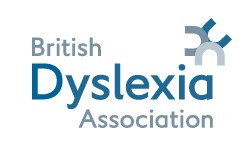Dyslexia guidance & checklists
A good place to start looking for information on dyslexia is in our handy guide – a one-page resource to get you started.
Co-produced Guidance
In 2019, after many months of co-production between the Local Authority and Pinpoint new Dyslexia Guidance was issued.
 ‘The guidance embodies the ethos of the S.E.N.D. reforms, of working with parents, children and young people as well as teachers and other professionals to enable ‘co-production’ at all levels: from interventions for an individual child; to a dyslexia friendly classroom and school; and county wide guidance, planning and commissioning. It promotes Dyslexia friendly schools, early identification and assessment, screening and evidence-based interventions; it has F.A.Q.s, tips from parents and a moving composite ‘letter from a dyslexic pupil’ to their teacher. An extensive research document backs up the guidance, with links to resources and opportunities for further learning. A focus on dyslexic strengths and what dyslexic children can do, and not just their difficulties, can help to maintain self-esteem and motivation to learn and prevent behavioural and mental health problems.
‘The guidance embodies the ethos of the S.E.N.D. reforms, of working with parents, children and young people as well as teachers and other professionals to enable ‘co-production’ at all levels: from interventions for an individual child; to a dyslexia friendly classroom and school; and county wide guidance, planning and commissioning. It promotes Dyslexia friendly schools, early identification and assessment, screening and evidence-based interventions; it has F.A.Q.s, tips from parents and a moving composite ‘letter from a dyslexic pupil’ to their teacher. An extensive research document backs up the guidance, with links to resources and opportunities for further learning. A focus on dyslexic strengths and what dyslexic children can do, and not just their difficulties, can help to maintain self-esteem and motivation to learn and prevent behavioural and mental health problems.
This Dyslexia Local Offer enables parents to find out about dyslexia and what to expect if their child is, or might be, dyslexic and enables parents to feed back about local services and gaps. It provides clear guidance on dyslexia and literacy difficulties – although we would argue that the terms are not interchangeable; all struggling readers, whether dyslexic or not, should receive interventions appropriate to their individual needs. Cambridgeshire should be commended for an excellent, evidence-based Dyslexia and Literacy Difficulties Local Offer. , Taken from the Forward to the County Council’s New Dyslexia Guidance, from our Chair in 2019, Fay Dutton, and Helen Boden, CEO of the Briskish Dyslexia Association.
There is also a new guide for parents.
Dyslexia Checklists from the British Dyslexia Association
There are lots of free, professionally developed resources available from the British Dyslexia Association including assessment tools and checklists. Parents and professionals find them helpful.
Checklists for learners
Checklists can’t tell you whether a learner is dyslexic. They are useful because they outline your learner’s strengths and weaknesses, and can help to inform a supportive teaching strategy.
Understanding Neurodiversity: A Guide to SpLD (2nd edition)
Appropriate support should be put in place as soon as a need is identified. A formal diagnosis is not required for support in the classroom. However, a formal diagnosis would help to give a clearer picture of your learner’s areas of strength and weakness.
Local Authoirty Posiiton Statements
The LA have issued posiiton statements to explain some of their decisions that relate to dyslexia.
Coloured Lenses/Overlays and Vision Therapy
Cambridgeshire County Council does not recommend vision therapy or a formal assessment for coloured overlays/lenses to help with reading and writing skills. This guide explains why. There is a shorter version and easy read version available too.

